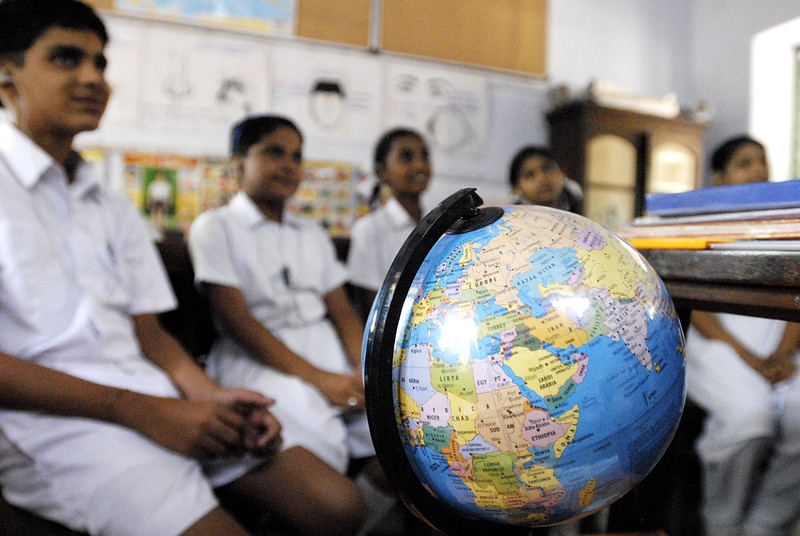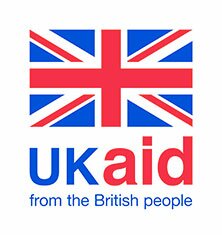In the wake of the COVID-19 pandemic, education provision has been disrupted at an unprecedented scale. 1.58 billion learners globally have been affected as a result of country-wide school closures in 189 countries.
Impacts could be wide-ranging: approximately resulting in knowledge loss, reversal in literacy, and interruption of their development. School closures, along with other disease controls, had a negative impact on children’s physical and mental health due to lack of play and socialisation. For girls, the cost was higher: older girls often took on parental roles owing to the death of caregivers, which resulted in them dropping out of school; physical and sexual violence against girls increased, with a substantial rise in teenage pregnancy rates, often linked to transactional sex to secure basic goods and services.
What are the lessons from outbreaks of Ebola, SARS, H1N1, and others? While several reports provide guidelines and recommendations, these are rarely based on evidence of impact and thus drawing out lessons from past contexts to inform this situation is challenging.
This summary outlines some of the key findings from a rapid literature review from the Maintains programme, exploring the current state of knowledge. That review itself draws substantially on a recent review by Joe Hallgarten, and also note that the Inter-agency network for Education in Emergencies is currently very dynamic and offering a range of resources to support education under COVID-19.
During an epidemic, education is rarely prioritised: instead, school-based resources are often to help mitigate the immediate impact of the disease – for example, teachers providing health awareness and social mobilisation workshops.
Past responses to disease outbreaks suggest that education systems should immediately activate a response plan that ensures that children participate in and engage with education in some way. A common response has been the distribution of learning materials to children’s homes, blended learning, and distance learning approaches. Even if some of these programmes are not successful in improving learning outcomes, they serve an important function for children to maintain a connection with education, and thus support re-enrolment post-crisis.
One successful example from Ebola in Sierra Leone was from Kailuhun, one of the poorest districts and with very high infection rates. An existing project ‘Getting Ready for School’ was rapidly redesigned to become a radio programme Pikin to Pikin Tok (Child to Child Talk). 36 existing ‘young facilitators’ created content in three languages; radios were distributed to another 252 facilitators, who created listening groups. Overall, the programmes reached an audience of 137,000. Working with national agencies and local leaders ensured strong buy-in at all levels, and the content was gender-responsive. The final evaluation showed high levels of child engagement and strong agreement from adults that the programming had contributed to children’s learning; children could also recall many of the key messages from the programmes.
In the wide-ranging ongoing discussion on education in the COVID-19 context, there appears to be no substantive consideration for children who are not in school even before a disease outbreak. In 2018, 258.4 million children, adolescents, and youth were already out of school, representing one-sixth of the global population of this age group. Out-of-school children are usually poor, live in rural areas, and are mostly girls, so they already face obstacles to access education systems and other formal institutions. School-centric approaches to the outbreak response and reform stand to miss out on these children, entrenching inequalities further.
When the peak of the crisis is over, the education sector must focus on mitigating negative impacts, by focusing on ensuring that children return to school, attend regularly, and catch up on learning content, as well as considering the health and wellbeing of children while at school. that ‘back to school’ should be among the first priorities for the recovery of basic social services.
After Ebola, (i) waive school and examination fees; (ii) school feeding for primary students; and (iii) community mobilisation and targeted support to vulnerable groups. The pressure to ‘make up for lost time’ also included activities to accelerate learning, including improved syllabi and teacher training, classroom upgrades, continuing the radio programmes, and solar kits for rural schools. Another key aspect of course is to ensure that schools should be better prepared for future outbreaks. However, only .
Previous disease outbreaks, including Ebola in particular, have demonstrated the need and opportunity for reform following an outbreak in order to be better prepared for future events. This includes documenting evidence of what works, for whom, and at what cost during and immediately after the pandemic. Governments and organisations took a range of responses to the Ebola epidemic, but few responses were fully documented, assessed, or evaluated.
The rapid literature review identifies a number of recommendations to support education systems during the COVID-19 pandemic; Maintains will explore some of these in our work and we hope they provide useful learnings for other organisations.
All Maintains evidence and articles relating to COVID-19 can be found here.
About Maintains
Maintains aims to save lives and reduce suffering for people in developing countries affected by shocks such as pandemics, floods, droughts, and population displacement. This five-year programme, spanning 2018–2023, is building a strong evidence base on how health, education, nutrition, and social protection systems can respond more quickly, reliably, and effectively to changing needs during and after shocks, whilst also maintaining existing services. With evidence gathered from six focal countries – Bangladesh, Ethiopia, Kenya, Pakistan, Sierra Leone, and Uganda – Maintains is working to inform policy and practice globally. It also provides technical assistance to support practical implementation.
This output has been funded by UK aid from the UK government; however, the views expressed do not necessarily reflect the UK government’s official policies. Maintains is implemented through a consortium led by Oxford Policy Management www.opml.co.uk.



